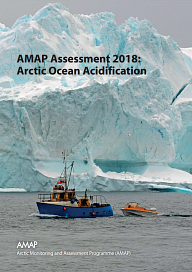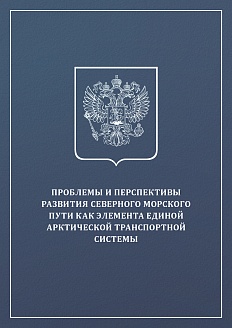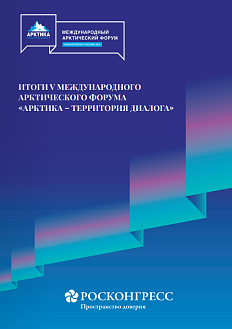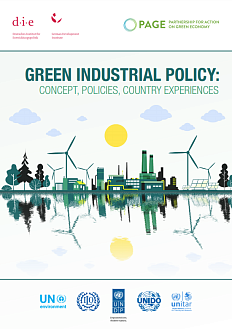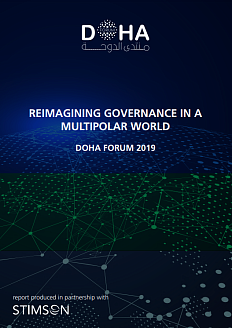Particularities of ocean acidification in the Arctic
Since the publication of the first Arctic Monitoring and Assessment Programme (AMAP) Arctic Ocean Acidification assessment in 2013, further research and data collection has reinforced the reports findings and deepened understanding of the chemical, biological and socio-economic implications of ocean acidification in the Arctic.
The AMAPs assessment reported that the Arctic Ocean and its marginal seas are acidifying primarily due to the uptake of carbon dioxide (CO2) from the atmosphere, but also as a result of other chemical additions and subtractions of carbon via other biogeochemical processes. The phenomenon, termed ocean acidification, is intensified in the Arctic relative to other regions of the world due to low ocean temperatures that increase gas solubility, and the inflow of naturally low pH water from the Pacific Ocean, river runoff and ice melt. The degree and distribution of acidification is not uniform across the Arctic Ocean, resulting in high temporal and spatial variability.
Arctic Ocean acidification: an update
Chapter 2 of the 2018 report builds on the 2013 report by summarizing biogeochemical research published in the past five years. Acidification across the Arctic Ocean is increasingly evident, based on new and extended time-series. Focusing on seven Arctic regions, where there is sufficient information available, this chapter discusses trends and changes observed in the marine carbonate system and the regional drivers of ocean acidification.
The chapter also includes updated projections of Arctic Ocean acidification, noting that, with continuing carbon emissions, acidification is expected to continue progressing over the next century, although probably with considerable regional variability. The continued decrease in the saturation states of aragonite and calcite as a result of acidification, coupled with warming ocean conditions, is likely to have considerable impacts on marine ecosystems. Projections suggest that there will be significant changes in ocean chemistry in the coming decades, with the export of waters undersaturated in calcium carbonate from the Arctic increasingly impacting oceans outside the region.
Reduction in bottom water pHT (total pH) between bi-decadal averages 20002019 and 20502069

Biological responses to ocean acidification
It is anticipated that ocean acidification, particularly coupled with ocean warming and deoxygenation, will drive changes in marine ecosystems and impact Arctic biota. Anticipated biological changes, which are considered in Chapter 3, will be both direct and indirect. Likely direct effects include changes to key physiological aspects such as calcification, growth, reproduction, and metabolic rates, while indirect effects include changes in food availability and quality.
Despite varied biological responses, complex ecosystem interactions among species and response uncertainty under multi-stressor conditions, it is likely that ocean acidification will drive changes at a magnitude that will affect people living in the Arctic and surrounding regions. These changes pose risks to commercial, subsistence, and recreational fisheries, as well as to the provision of other ecosystem services in the region.
Socio-economic impacts of Arctic Ocean acidification on fisheries
Chapter 4 summarizes case studies commissioned by AMAP that explore the socio-economic impacts of ocean acidification in five Arctic regions. Three cases consider specific fisheries in the region, while two examine impacts and effects on regional commercial and subsistence fishing activities. Fisheries examined in the case studies include Norwegian kelp and sea urchins, Barents Sea cod and Greenland shrimp. Regional effects on commercial and subsistence fishing are examined in Alaska and in the western Canadian Arctic.
The case studies demonstrate that highly productive and locally important commercial and subsistence fisheries are vulnerable to the combined effects of acidification, warming, and other environmental stressors. While impacts on fisheries are likely to be modest in the next decade or two, they are likely to increase substantially beyond the middle of the century.
Knowledge gaps and recommendations
Understanding of the processes driving ocean acidification continues to improve, although there remain important gaps in knowledge regarding chemical, biological, and socioeconomic responses.
AMAP suggests that there are specific actions that could be taken to improve the scientific understanding of processes related to ocean acidification. Enhancing research and monitoring of Arctic Ocean acidification must continue to be a high priority within the Arctic Council to promote cooperation between Arctic countries. There is need for a unified monitoring program to harmonize and support adaptation actions in the Arctic. Besides that, there is a need for more in situ research and observation to better understand the changing chemistry of Arctic waters, and Arctic-specific responses of biota. It is essential that action on adaptation is undertaken concurrently with mitigation.
This publication has been posted in the Roscongress Information and Analytical System on the recommendation of the Roscongress Foundation expert community.


